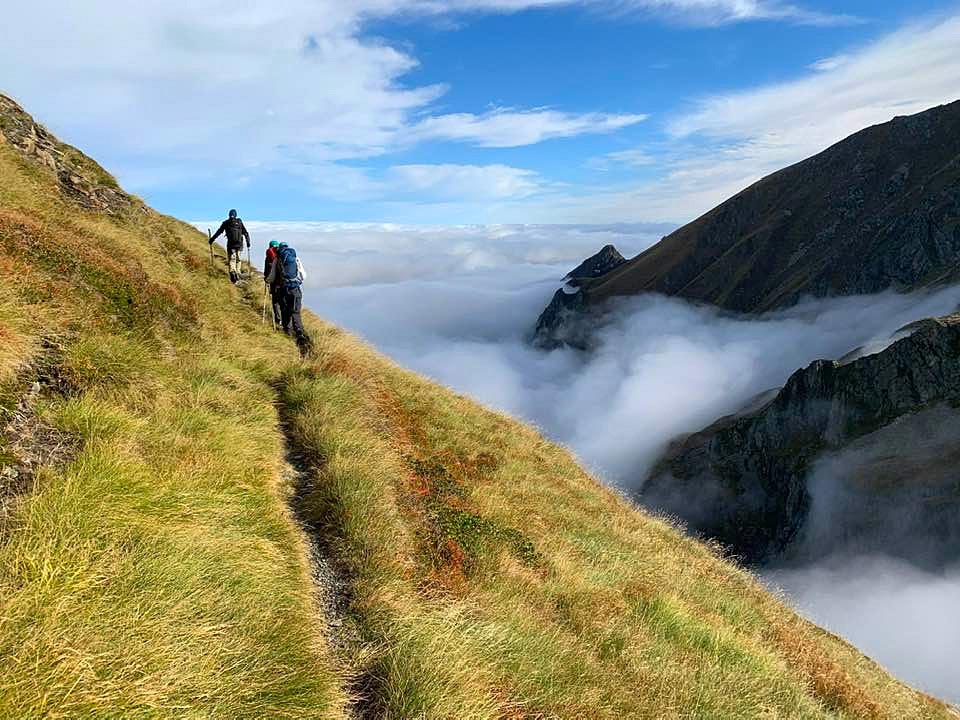
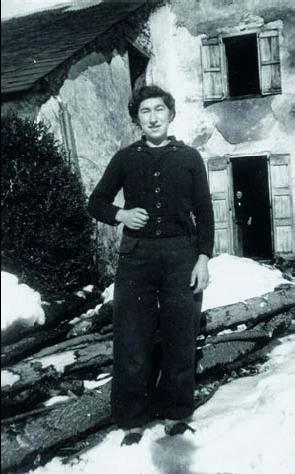
December 5th, 1942. Jeanne Agouau, 22 years old, is a shepherd who lives in Aulus-les-Bains, a small village in the French Pyrenees, near the Catalan border. Her father has agreed to help a group of 9 Jews to cross the Pyrenees into Catalonia to escape the Nazi occupation of the south of France, where Jews were being deported to concentration camps.
Jeanne’s father needs another guide and Jeanne volunteers. The group, along with Jeanne and her father, leave Aulus-les-Bains at 3:00 am so they will not be discovered by the German army. They started to ascend the Gerbet valley.
At 7:30 am they arrive at the most difficult part of the itinerary, the Ars cascade. Surprisingly, they met another group of Jews trying also to escape, led by a guide named Jean-Baptiste Rogalle (Jeanne’s future husband). Jean-Baptiste leads the Henle family, Belgian Jews – a couple, their seven-month-old baby Claude, and the baby’s grandmother. The two groups decide to stay together.
The group led by Jean-Baptiste walks more slowly than Jeanne’s. The mother and grand-mother plead for breaks frequently. The father is also very tired so Jeanne carries Claude, the baby. The route is a struggle; it takes 12 hours to reach the border. Once they arrive the leaders explain how to get to the first Catalan village, and turn back for home. They are not paid; they want to help the Jews escape.
In Catalonia, before they can reach this village – Tavascan – the group passes the Romedo lakes. There, Meta Weiler, the grandmother, has an accident and cannot continue walking. She stays behind, hiding in a cave.
December 6th. They arrive at Tavascan and are met by the Guardia Civil (Spanish paramilitary police), who cannot believe they have crossed the Pyrenees in such bad weather with a small baby and think the group must have used a plane. They walked back towards France to look for it, and find the grandmother alive in the cave. The freedom trail across the Pyrenees has ended.
In 1944 the Henle family leaves Spain on a boat for Philadelphia, and then moves to Canada.
In July 2004 Jeanne and Claude meet again for the first time in 62 years in Aulus-les-Bains, where Jeanne was awarded the French Légion d’Honneur. To learn more about this story click here.
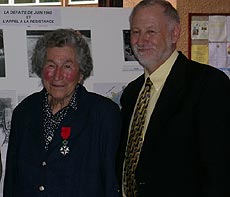
Our freedom trail across the Pyrenees takes place in the Alt Pirineu Natural Park and the Parc Naturel Régional des Pyrénées Ariégeoises. We will follow the same path the Henle family used to escape from Aulus-les-Bains, through alpine landscapes with high-altitude cols (Port de Guiló), lakes in valleys carved by ancient glaciers and year-round snowcaps.
The Alt Pirineu natural park is the biggest natural park in Catalonia, located in the Catalan Pyrenees, east of the famous Aigüestortes i Estany de Sant Maurici national park. It is bounded by France to the north, by Andorra to the east, and by the rest of Catalonia to the south and west.
Catalonia’s highest peaks are located in this park, as well as the biggest natural lake on the southern slopes of the Pyrenees, the Certascan lake. The peak of Pica d’Estats at 3143m is the highest peak in Catalonia.
The Alt Pirineu natural park has 87 lakes (estanys in Catalan) and 94 small lakes (‘estanyets’), which are at least as beautiful and far less visited than those of the better known Aigüestortes national park.
Above the Alt Pirineu N.P., but in France, there is the Parc Naturel Régional des Pyrénées Ariégeoises, located in the Ariège Department, in the Occitania region. In this area there are many remarkable lakes, such as l’étang de Lers, the Bethmale lake, and the lakes of the Bassiès cirque. Among the most admired massifs are Mont Valier and the Montcalm massif.
Our trek here will be guided by an enthusiastic local UIMLA guide who is an expert in the culture, geography, flora and Romanesque art of the area. His knowledge, combined with the walks and visits included in this programme will give you a most rewarding Pyrenean experience.
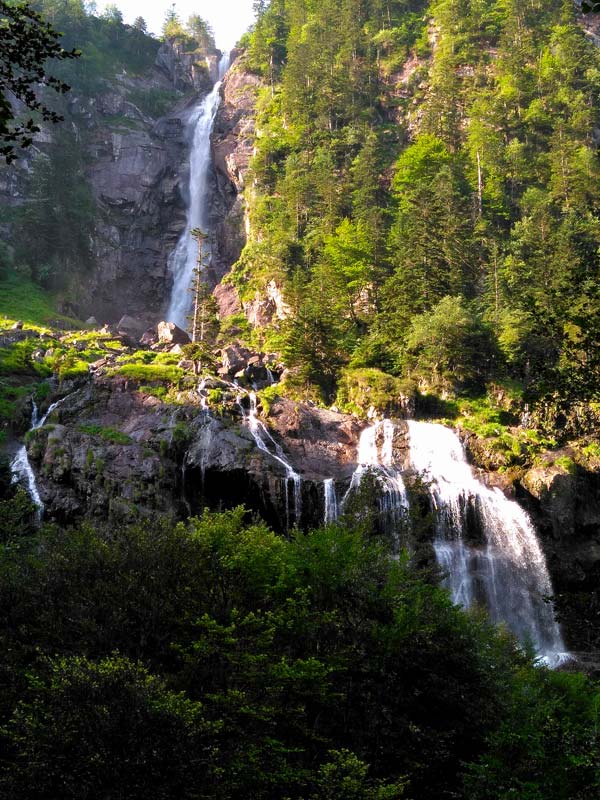
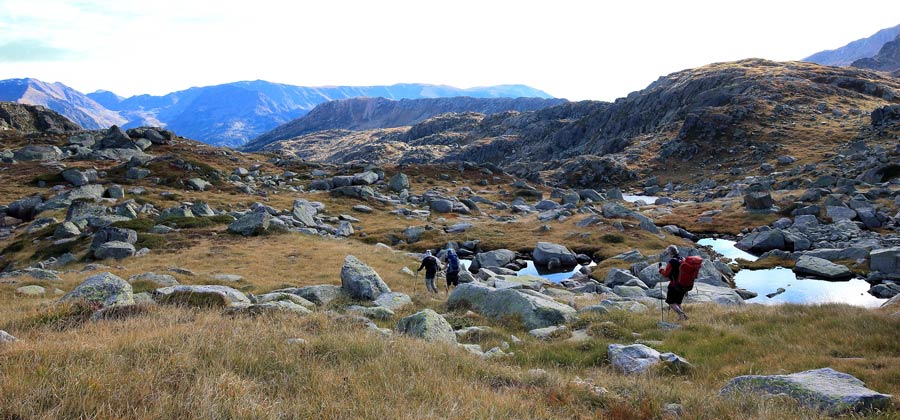
Fly to Barcelona. Your guide will pick you up in Barcelona city. Once the whole group has convened, you will transfer to Tavascan; four to five hours driving. Departure from Barcelona no later than 15:00.
We will stay overnight in Tavascan
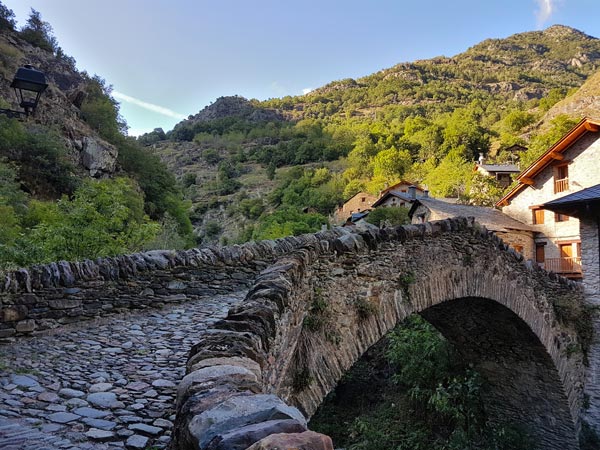
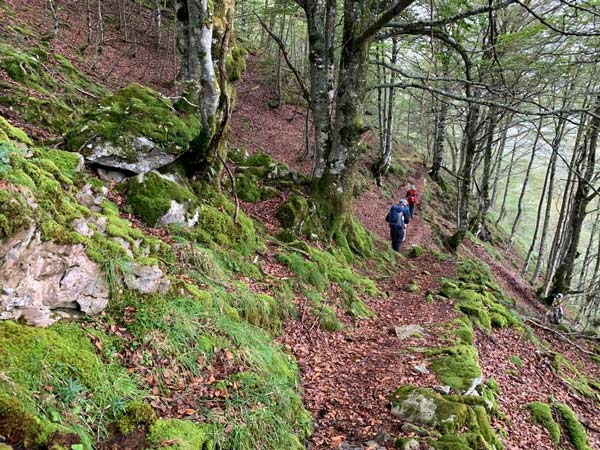
Distance: 17.3km – Elevation gain: 850m – Elevation loss: 1500m – Duration: about 7.5 hours, including breaks.
We start walking after a 25-minute drive. We will arrive in France at the Tavascan pass (2216m), after passing by the Estany del Port lake. This pass was also used by the Republican soldiers and people who fled from General Franco in 1938 and 1939 at the end of the Spanish Civil War.
There will be a long descent before reaching Bidous, where we will stay overnight.
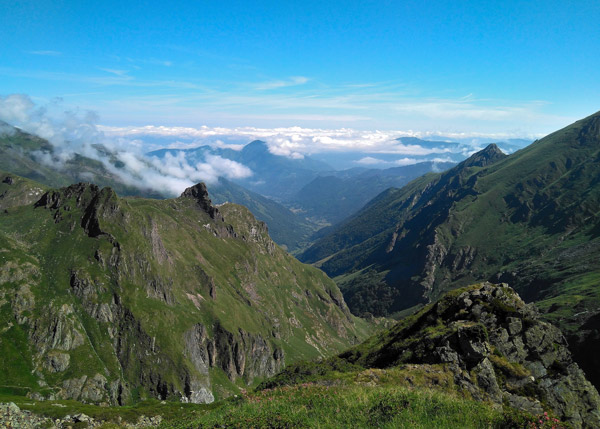
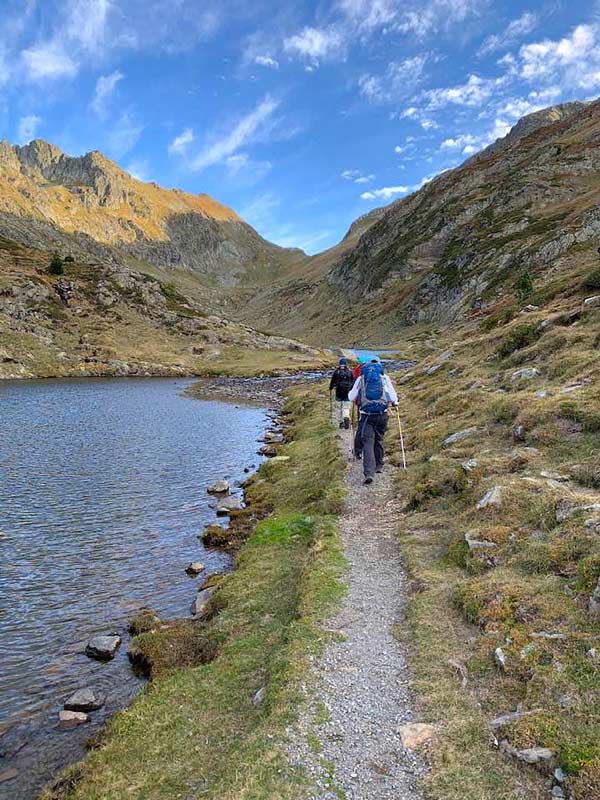
Distance: 16.6km – Elevation gain: 940m – Elevation loss: 943m – Duration: about 7.25 hours, including breaks.
This is the gentlest leg of the trek. We will follow the GR 10 and cross some of the most beautiful deciduous woods of the Parc Naturel regional des Pyrénées Ariégoises.
Aulus-les-Bains (750m) is best known for its hot springs. Before dinner we will meet Bernadette, Jeanne’s youngest daughter. She and her husband still live in Aulus. Bernadette will open for us the school of Aulus where the Mémoire et Histoire Vivante d’Aulus-les- Bains is based. This association aims to preserve the memory and promote debates about:
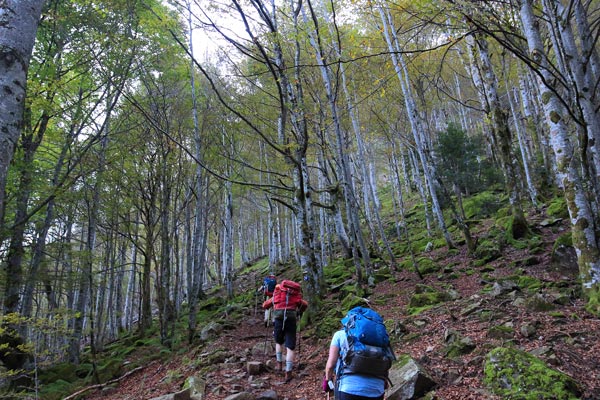
• The French Petain government’s collaboration with the Nazis during WW2
• The Jewish families who were hosted in Aulus and their fates, as well as their escape to Spain crossing the Pyrenees
• The impact of the measures imposed by Germany on Aulus, a small border village geographically isolated, during WW2
We will stay overnight at Aulus-les-Bains
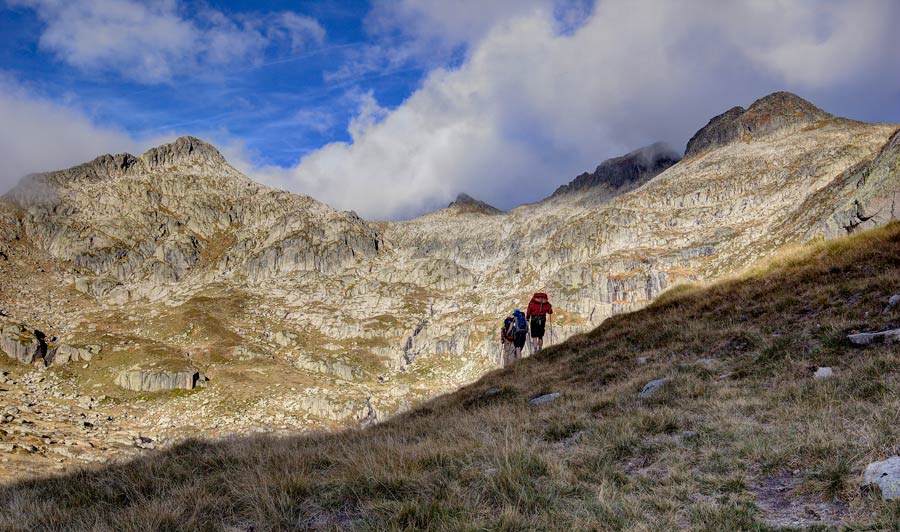
Distance: 15.7km – Elevation gain: 1720m – Elevation loss: 350m – Duration: about 10.5 hours, including breaks
Undoubtedly, this is the more challenging leg. We won’t walk all the way between Aulus-les-Bains and Tavascan, as the Henle family did, because there is no place to stay overnight before arriving at Tavascan. Trying to walk all the way would make the leg 14-15 hours long.
During the first part of the leg we will cross awesome beech forests full of raspberries. Then, we will arrive at the popular Ars cascade (1340m), which has three falls, the tallest being 110m high. The Russel count, a well-known Pyrenean discoverer of the late 19th century, considered this cascade to be the most beautiful one in the Pyrenees.
We will reach Catalonia at the Port de Guiló pass (2371m). There will be stunning lakes in front of us: they are the Romedo, Senó, Colaix and Guiló lakes.
After a 45-minute drive we will reach Tavascan, where we will stay overnight.
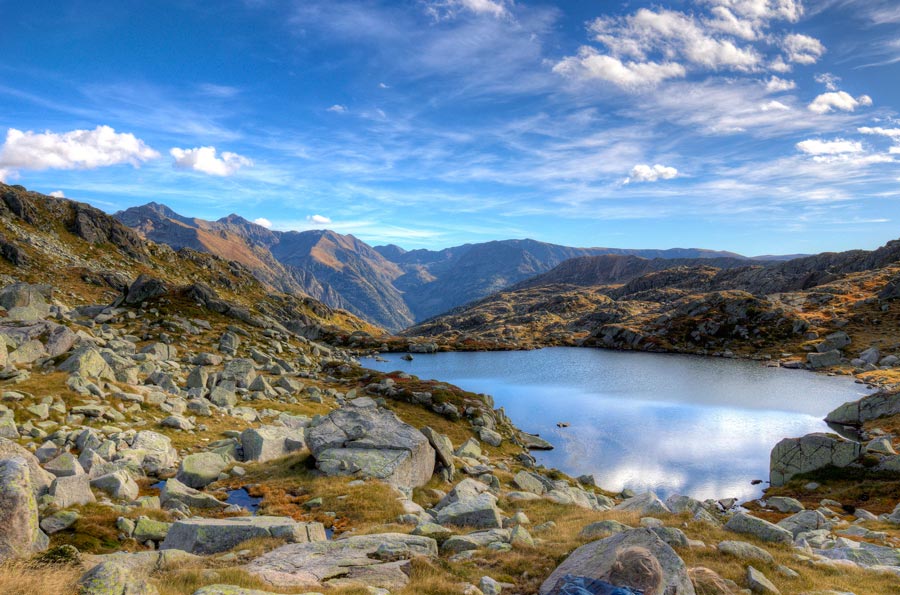
After breakfast we transfer back to Barcelona city to connect with your flight home
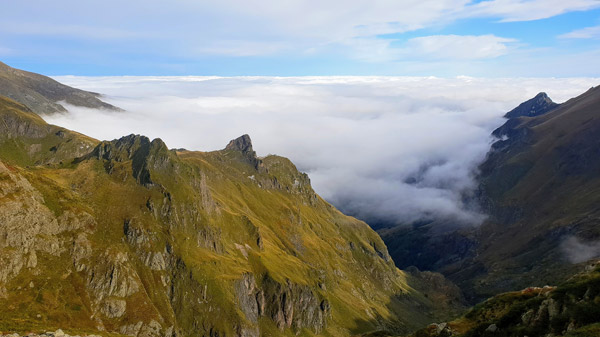
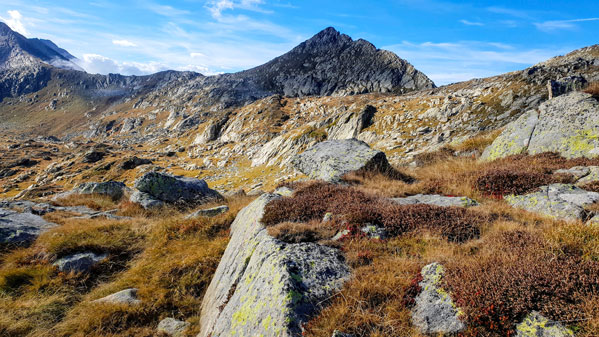
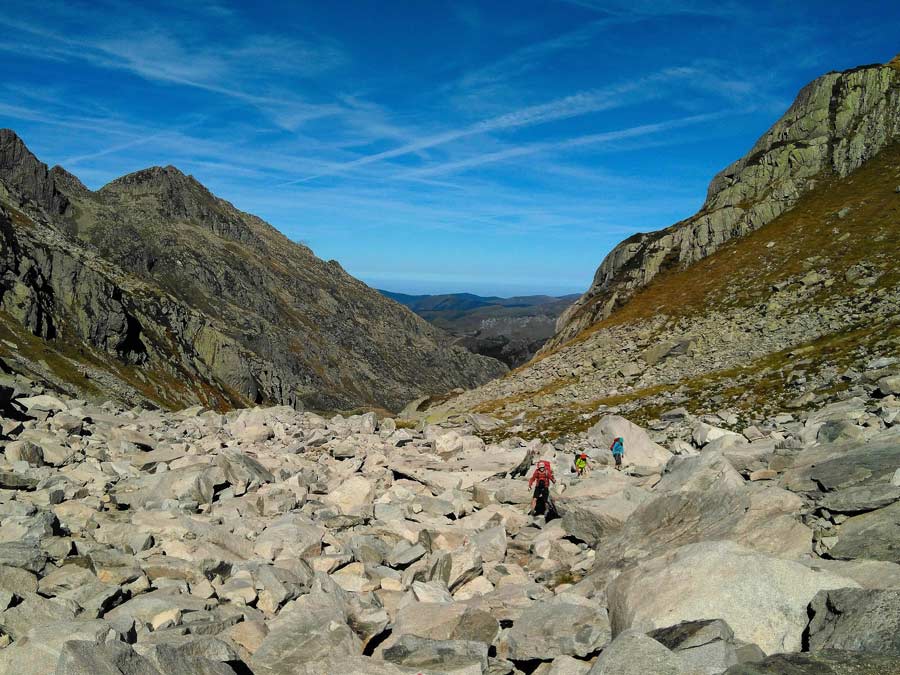
Accommodation of the Freedom Trail across the Pyrenees
Two nights, full-board, in pretty hotel in Tavascan, run by a local family. The hotel prepares the packed lunches every day.
Single, double or twin-bedded rooms.
The foodies will enjoy the excellent dinners, always accompanied by Catalan wine.
Two nights in two different French gîtes d’étape. One with full board, the other one without meals.
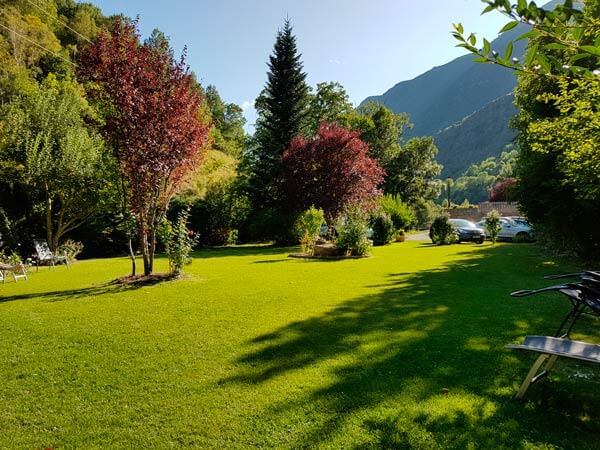
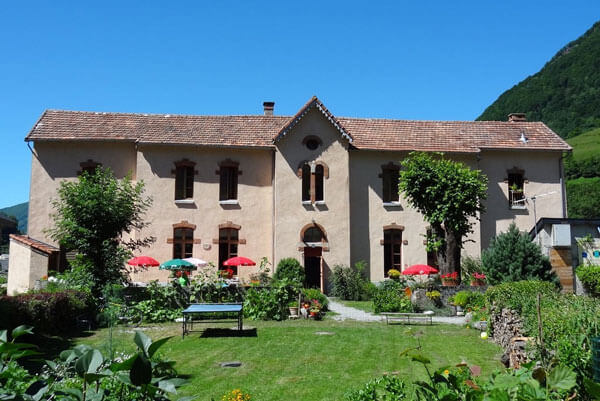
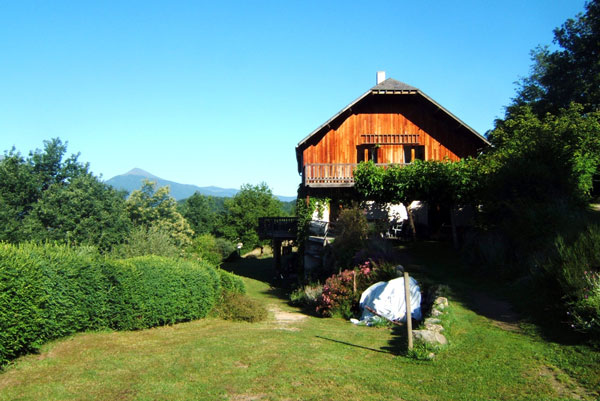
Still available places for the Freedom Trail across the Pyrenees trek:
– July 20 2024
– August 11 2024
– September 21 2024
What’s included:
>> Accommodation: two nights in hotel and two nights in gîte d’étape.
>> Meals: three breakfasts, two packed-lunches and three evening meals
>> Two luggage transfers: from Bidous to Aulus-les-Bains + from Aulus-les-Bains to Tavascan.
>> Park fees as appropriate
>> All road transfers in country
>> Accident insurance while in the wilderness
>> Qualified English-speaking local mountain guide
Excluded:
>> Flights
>> Personal equipment
>> Travel insurance
>> Lunch on the first and fifth days (transfer days) and packed lunch on the last leg of the trek.
>> Breakfast and dinner in Aulus-les-Bains.
Essential info:
– The guide has the right to change the itinerary at any time if deemed necessary to guarantee the security of the group
– Walking gear & equipment – We send you a list when you book

